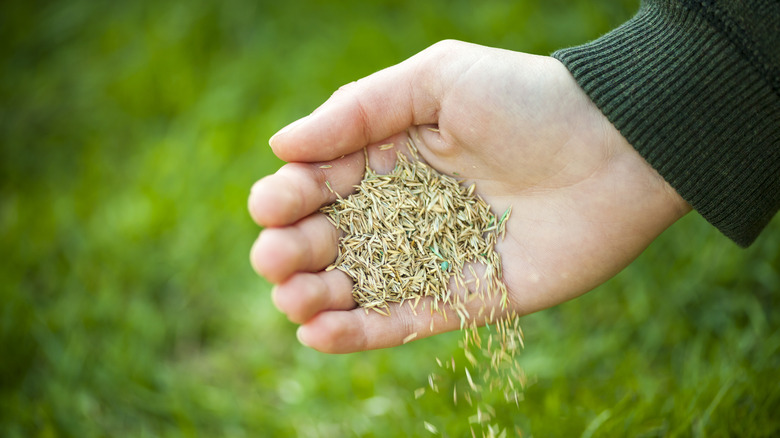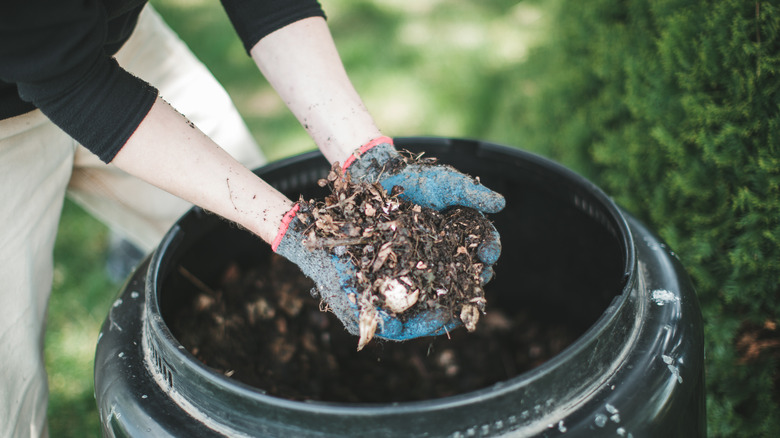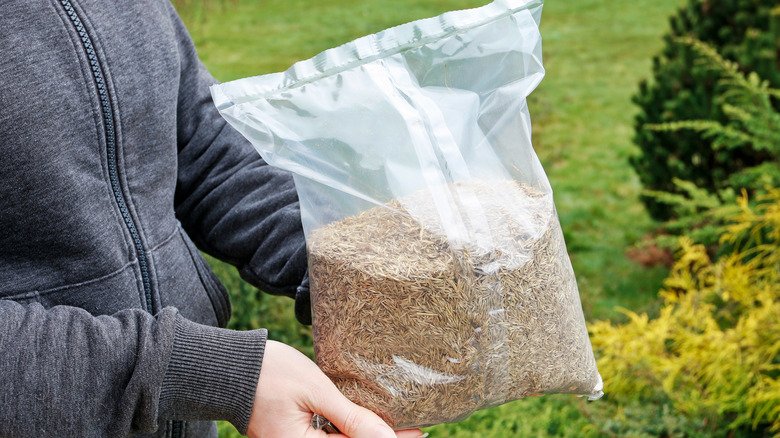Here's What You Can Do With Old Grass Seed
Even with careful planning, it's possible to find that you have some grass seed left over after lawn care season comes to a close. If you have some old grass seed that's been stored for a while, you may be wondering whether it's going to go bad and what you can do with any that remains. It's true that your grass seed may expire before you plant it, so be aware of this. Most grass seed tends to go bad after about 5 years, but will deteriorate a little at a time. It loses about 10% viability every year.
As it ages, you can still use it when growing grass from seed. However, you'll need to use a bit extra to get results, based on how much it has deteriorated, since many of the seeds won't germinate. If the grass seed has deteriorated by about 20% based on how much time has passed, then use 20% extra. In addition to planting old grass seed normally, it can also be used for overseeding, added to compost, for home decor, or even bird seed.
The best ways to use old grass seed around the home
If you find that your grass seed is too old for normal use, then there are still a few options to consider to make good use of it. One of the best options is to simply add it to your existing lawn for overseeding, in which you'll add a bit of additional seed to an existing lawn. Overseeding can help improve lawn density and eliminate bare areas. As an alternative, you can simply add old grass seed to compost. While a compost bin can benefit from leftover grass clippings, old grass seed can be useful as well. However, add old grass seed only if it's organic and doesn't contain any chemicals.
Other than using it for gardening purposes, there are less conventional ways to use of old seed. Adding grass seed to a vase or using it in crafts is worth considering. Another option is using it as bird seed. While it doesn't have as many nutrients as other types of seed, using it sparingly or in combination with other types of seed can be a good way to make use of it. However, only use uncoated grass seed since coated seeds could cause some issues with digestion and birds don't prefer them. If none of these options are for you, you may simply want to get rid of old grass seed by putting it in the trash for local trash pickup. In some areas, there are additional options for recycling organic materials such as grass seeds.
Properly storing and testing unused grass seed
Be aware that maintaining proper storage conditions can help reduce the decline of grass seed. Be sure that you store it in cool location that's free of moisture and that it doesn't have any direct sunlight on it. Also, avoid heat and humidity. It's a good idea to store grass seeds in a basement, garage, or a room with climate control. Keep it unopened if possible. Otherwise, put the seeds in a container that's fully sealed. Keep in mind that cool season grasses do best and can last a bit longer than warm season grasses. If in doubt, you can perform a germination test to get a clearer idea of how well your cool or warm season grass seed has held up over time.
A simple germination test can help you determine the condition of grass seed and decide whether you should use it. To do this, you'll need to take 10 seeds or more and set them on a paper towel that has been dampened. Roll the paper towel up and place it in a plastic bag, then leave it in a warm place. After five to seven days have passed, check the seeds. Measure the percentage of those that have sprouted to determine overall seed viability.


